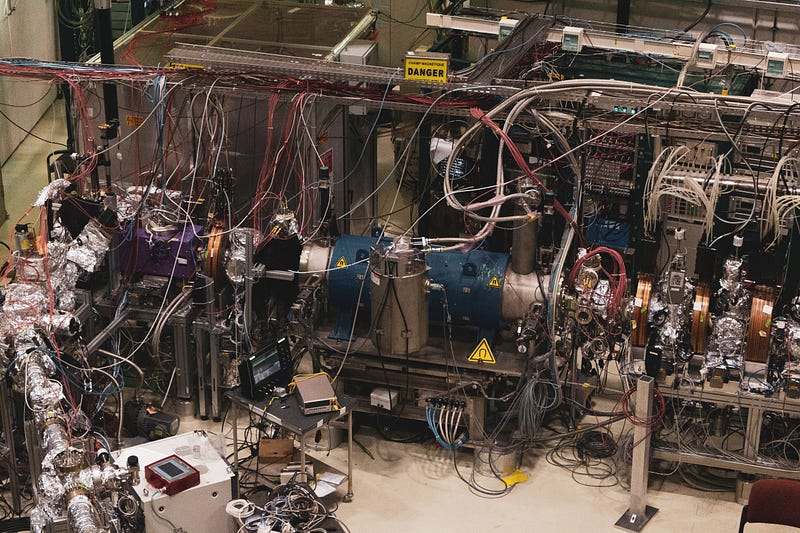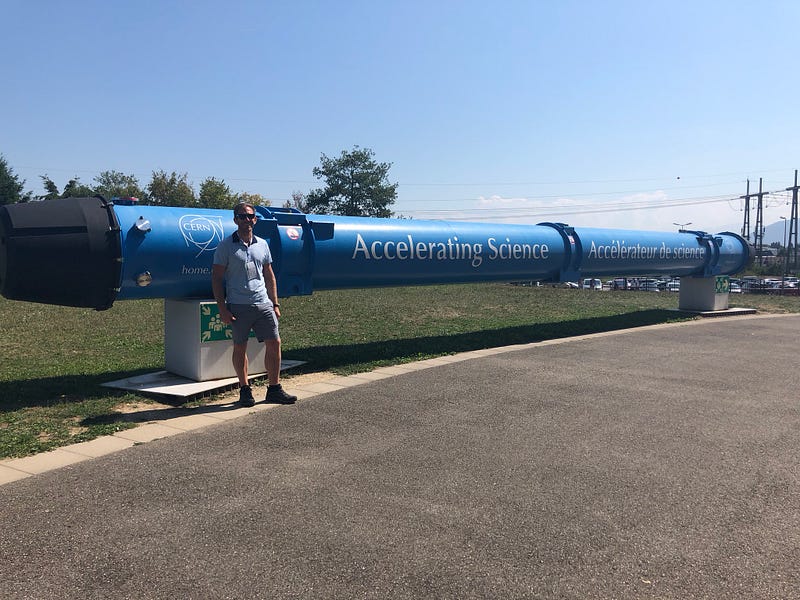Exploring the Journey of Quantum Computing and Self-Discovery
Written on
Chapter 1: Embracing the Unknown
Don’t worry if you feel lost; I often do as well.

In my previous article about four-dimensional art, I mentioned that it wouldn't offer much practical help. I stand by that sentiment. After spending around six years at community college, I eventually transitioned to university to study computational physics. I later shifted to cognitive science, believing that understanding the brain would accelerate my learning and help me start a family sooner. However, this strategy was rooted in fear. I struggled with courses like electromagnetism, earning a C, and Multi-Variate Calculus, where I received a C-. Consequently, my confidence plummeted. I began to question my worth and future:
- Am I too old to grasp the universe's complexities?
- Will financial struggles in physics hinder my relationships?
- What if I never find a capable research advisor?
- Is my dissertation destined to be insignificant?
These thoughts reveal a common theme: fear. I find myself trapped in a cycle of anxiety about my mathematical abilities and my potential inadequacies. Yet, this fear holds a certain beauty. It acts as a reminder not to squander resources. If I lack the innate talent for solving profound mathematical problems, perhaps I shouldn’t consume societal resources pursuing it. It’s essential to channel those resources toward individuals truly gifted in these areas.
Ultimately, I believe I made the right decision by focusing on software design. It melds creativity with scientific principles, allowing my curiosity to flourish. However, I wonder if I should still apply my curiosity to scientific exploration. Great physicists require advocates who appreciate their work. Everyone yearns for acknowledgment, and if my talents can help elevate the contributions of brilliant minds, isn’t that a worthy pursuit?
Geneva or Bust

I visited the CERN particle accelerator with dreams of creating holograms for physicists. My passion for user experience led me to explore their needs and technologies. Yet, I realize how misguided my initial view of success was. I set a binary definition: designing interfaces for CERN equated to success; not achieving this meant failure. However, CERN operates on probabilities, embracing multiple outcomes. It’s fascinating how I failed to see this sooner.
True success, I understand now, lies in aiding brilliant minds to visualize and realize their scientific insights in quantum physics—and perhaps even astrobiology, because the concept of life beyond Earth is exhilarating. However, so is the beauty of life here. I’ve come to appreciate that the individuals around me possess intellect far beyond any particle accelerator we might construct. Artificial intelligence emerged from our extraordinary minds; it’s not a ceiling but a testament to our potential. Digital computation may eventually hit limitations, and quantum computation will face its own errors.
The most profound realization is that life’s value doesn’t hinge on accolades like a Nobel Prize for creating an interface to unravel the universe's mysteries. Such aspirations can feel self-serving and overlook the collaborative and human stories behind every achievement. The true worth of life resides in the gradual revelations we experience:
- The acknowledgment that the sun remains a source of beauty.
- The understanding that the pain of love is meaningful.
- The realization that the present moment is the ultimate goal.
We navigate between two worlds: one where we strive for our fullest potential, sometimes neglecting the humanity in our current circumstances, and another where we embrace the beauty in our fears and vulnerabilities. In this space, we find we need one another more than we realize.
The Takeaway
This weekend, I plan to delve into quantum computing—not for grand achievements, but to connect with a friend I hope to assist. I encourage you, regardless of your expertise, to find solace in your imperfections and comfort amid your struggles. Remember, you’re not alone; we’re all in this together.
For a straightforward introduction to quantum computing, check out this video titled "Quantum Computing for Dummies: A Simple Explanation for Normal People."
Additionally, explore "Quantum Computers for Dummies Explained in Minutes" for a quick overview of the subject.